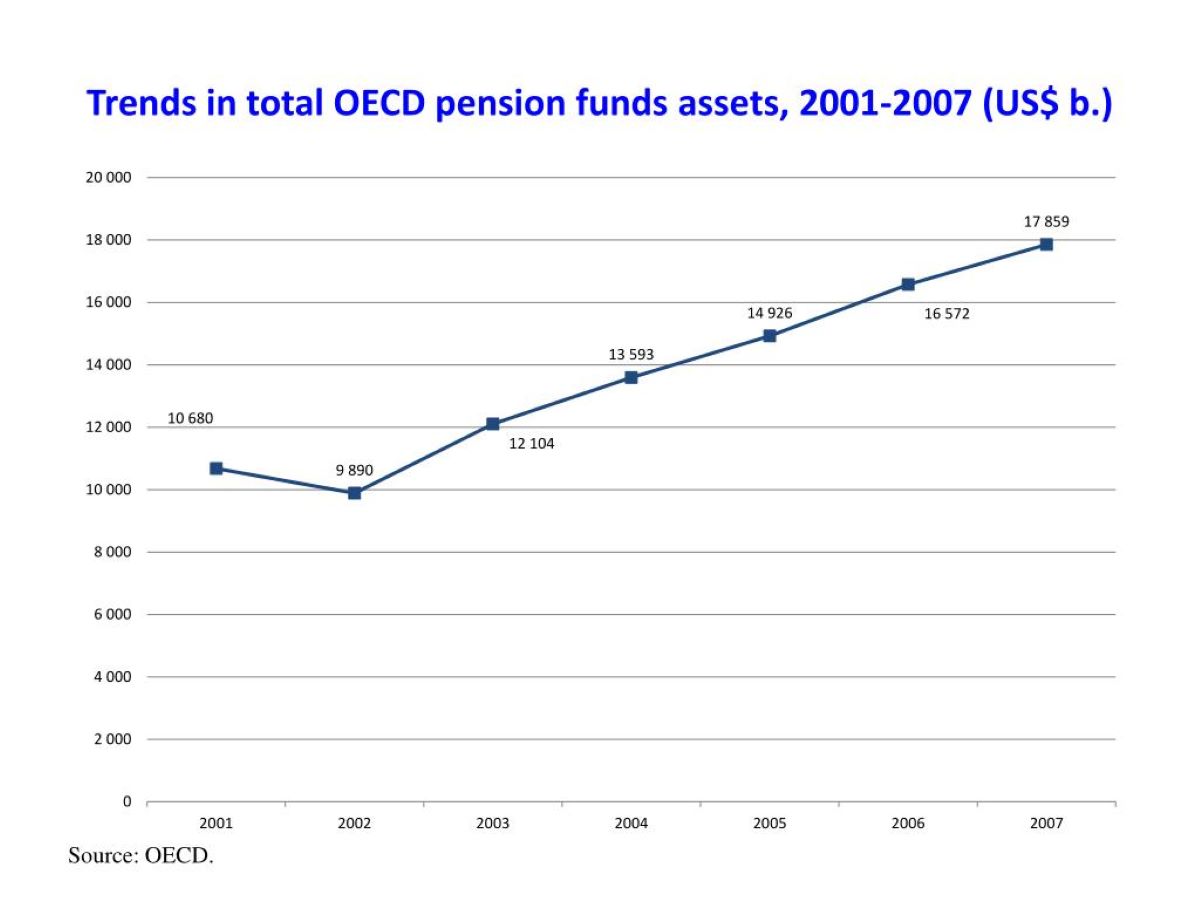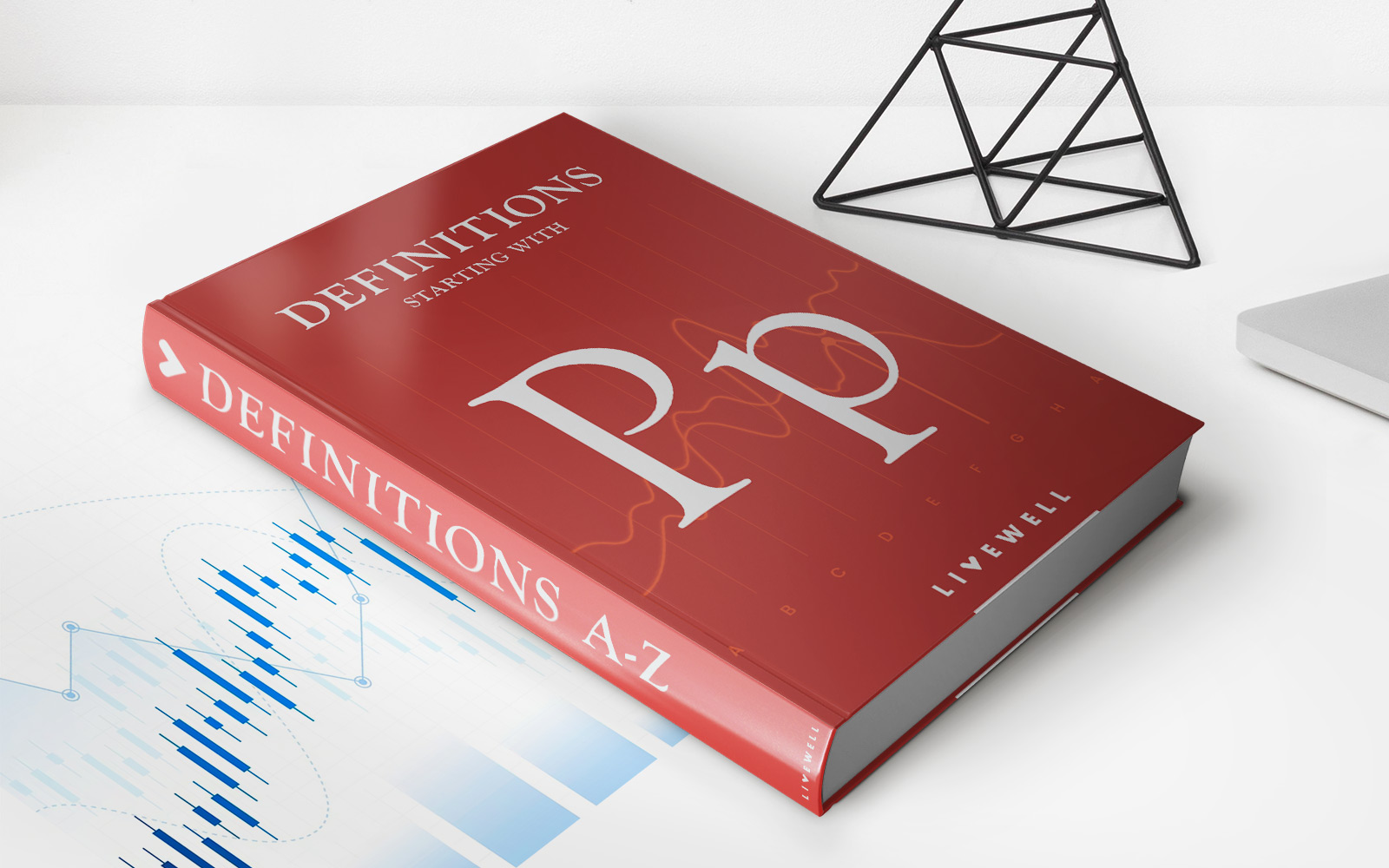

Finance
What Happens To My Pension If My Ex Wife Dies
Published: November 27, 2023
Learn about the financial implications of your ex-wife's death on your pension, ensuring you stay informed and prepared for any potential changes.
(Many of the links in this article redirect to a specific reviewed product. Your purchase of these products through affiliate links helps to generate commission for LiveWell, at no extra cost. Learn more)
Table of Contents
- Introduction
- Understanding Pension Benefits
- Divorce and the Division of Pension Benefits
- Impact of Ex-Spouse’s Death
- Scenario 1: If the Ex-Spouse Passes Away Before Retirement
- Scenario 2: If the Ex-Spouse Passes Away After Retirement
- Survivor Benefits
- Qualified Domestic Relations Orders (QDROs)
- Consequences of Remarrying
- Conclusion
Introduction
Welcome to our comprehensive guide on what happens to your pension if your ex-wife passes away. Divorce can be a complex and emotionally charged process, and understanding how it affects your pension benefits is crucial. When couples go through a divorce, they often need to negotiate the division of assets, including retirement savings. However, the situation can become more complicated if one of the ex-spouses passes away.
Pensions are an important source of income during retirement, providing financial security for individuals and their families. The division of pension benefits in a divorce can vary depending on the jurisdiction, the type of pension plan, and specific circumstances. It is essential to grasp the implications of your ex-spouse’s death on your pension benefits to make informed decisions and plan for the future.
In this article, we will explore the various scenarios that may unfold if your ex-wife passes away and how they can impact your pension benefits. We will also discuss survivor benefits, qualified domestic relations orders (QDROs), and the consequences of remarrying. By the end, you will have a better understanding of the potential outcomes and how to navigate this sensitive situation.
It is important to note that this article is purely informational and does not constitute legal or financial advice. If you are going through a divorce or have specific queries about your pension, it is best to seek professional advice from an attorney or financial advisor familiar with the laws and regulations in your jurisdiction.
Understanding Pension Benefits
Before diving into the intricacies of what happens to your pension if your ex-wife dies, it’s essential to have a clear understanding of pension benefits in general. A pension is a retirement plan offered by many employers to provide employees with a steady income during their retirement years. It serves as a financial safety net, ensuring individuals have a comfortable lifestyle even after they stop working.
Pension benefits can vary depending on factors such as the type of pension plan, years of service, and the employee’s salary. In most cases, pensions are funded by both the employer and the employee, with contributions deducted from the employee’s paycheck and supplemented by contributions from the employer. Over time, the funds grow through investment, providing a pool of money from which the retiree can draw.
There are different types of pension plans, including defined benefit plans and defined contribution plans. A defined benefit plan guarantees a specific income amount based on factors such as salary and years of service. With this type of plan, the employer assumes the investment risk, and the retiree receives a predetermined monthly benefit for life.
On the other hand, defined contribution plans, such as a 401(k) or an Individual Retirement Account (IRA), provide a retirement account where employees contribute a portion of their salary. These contributions are often matched by the employer up to a certain percentage. The total amount accumulated in the retirement account depends on the contributions made and the investment performance.
It’s crucial to have a clear understanding of your specific pension plan and its terms and conditions. This includes knowing the vesting period, which determines when you are eligible to receive the benefits, and any additional restrictions or benefits that may apply.
Divorce and the Division of Pension Benefits
During a divorce, the division of assets, including pension benefits, is an important consideration. The rules and regulations regarding the division of pension benefits vary depending on the jurisdiction and the specific circumstances of the divorce.
In many jurisdictions, pensions are considered marital property and can be subject to division between divorcing spouses. This means that a portion of the pension benefits accumulated during the marriage may be awarded to the non-employee spouse. The division of pension benefits is aimed at ensuring that both spouses can maintain a certain level of financial security after the divorce.
The way pension benefits are divided can vary depending on the type of pension plan and the specific rules set forth by the court. One common method is the use of a Qualified Domestic Relations Order (QDRO), which is a court order that allows for the division and transfer of pension benefits to the non-employee spouse. The QDRO specifies the amount or percentage of the pension benefits to be awarded and provides instructions on how the funds should be transferred.
It’s important to note that the division of pension benefits is not automatic and may require specific actions to be taken. For example, in the case of a defined benefit plan, the non-employee spouse may need to wait until the employee spouse reaches retirement age to start receiving their portion of the benefits. In contrast, for defined contribution plans, the non-employee spouse may have the option to receive their portion of the funds as a lump sum or roll it over into their own retirement account.
It’s essential to work with a qualified attorney who specializes in divorce and retirement benefits to ensure that the division of pension benefits is conducted in accordance with applicable laws and regulations. A knowledgeable attorney can guide you through the process and help protect your rights and interests.
Impact of Ex-Spouse’s Death
The death of an ex-spouse can have various implications for your pension benefits depending on the timing and specific circumstances. Let’s explore two possible scenarios and the potential impact on your pension.
Scenario 1: If the Ex-Spouse Passes Away Before Retirement
If your ex-spouse passes away before reaching retirement age, the impact on your pension benefits will depend on the division of assets established during the divorce proceedings. In many cases, if a portion of the pension benefits was awarded to the non-employee spouse through a QDRO, their share will typically be unaffected by the ex-spouse’s death.
However, it’s crucial to review the specific terms of the QDRO and consult with a legal professional to ensure that you fully understand the implications. It’s possible that certain provisions, such as survivor benefits or death benefits, may be outlined in the QDRO. These provisions can impact the allocation of pension benefits in the event of the ex-spouse’s death.
It’s also important to note that if you have named your ex-spouse as a beneficiary on any other retirement accounts or life insurance policies, you may need to update those designations after their passing. Failure to do so could result in unintended consequences and potential conflicts.
Scenario 2: If the Ex-Spouse Passes Away After Retirement
If your ex-spouse passes away after reaching retirement age, the impact on your pension benefits will vary depending on the specific terms of the pension plan and any survivorship options chosen by the retiree. Some pension plans offer survivor benefits that allow for a portion of the pension to be passed on to a designated beneficiary or a former spouse.
If you were designated as the beneficiary or have survivorship rights, you may be entitled to continue receiving a portion of the pension benefits after your ex-spouse’s death. It is essential to review the terms and conditions of the pension plan to determine whether you are eligible for survivor benefits and what steps need to be taken to initiate the process.
Keep in mind that if you remarry after the divorce and your ex-spouse’s death, it could potentially impact your eligibility for survivor benefits. Some pension plans may terminate survivor benefits upon remarriage, while others may have specific criteria or limitations.
It is essential to consult with a financial advisor or pension specialist to understand the specific impact of your ex-spouse’s death on your pension benefits. They can help you navigate the complexities and ensure that you are fully aware of your rights and any available options.
Scenario 1: If the Ex-Spouse Passes Away Before Retirement
If your ex-spouse passes away before reaching retirement age, the impact on your pension benefits will depend on the division of assets established during the divorce proceedings. In many cases, if a portion of the pension benefits was awarded to the non-employee spouse through a Qualified Domestic Relations Order (QDRO), their share will typically be unaffected by the ex-spouse’s death.
The QDRO specifies the amount or percentage of the pension benefits awarded to the non-employee spouse, and these benefits are often treated as separate property. This means that even if the ex-spouse passes away, the non-employee spouse’s portion of the pension benefits remains intact and will be paid out as specified in the QDRO.
However, it’s important to review the specific terms of the QDRO and consult with a legal professional to ensure that you fully understand the implications. Some QDROs may include provisions for survivor benefits or death benefits, which can impact the allocation of pension benefits in the event of the ex-spouse’s death.
In the unfortunate event of your ex-spouse’s untimely death, it’s also crucial to update any other retirement accounts or life insurance policies where they were designated as a beneficiary. Failing to update these designations could result in unintended consequences and potential conflicts.
It’s essential to work closely with an attorney and a financial advisor who specialize in divorce and retirement benefits to ensure that you navigate this scenario properly. They can provide guidance on the specific actions you need to take and any legal or financial implications that may arise.
Remember, the laws and regulations regarding pension benefits and divorce can vary by jurisdiction, so it’s important to seek advice from professionals familiar with the laws and regulations in your area.
Scenario 2: If the Ex-Spouse Passes Away After Retirement
If your ex-spouse passes away after reaching retirement age, the impact on your pension benefits will depend on the specific terms of the pension plan and any survivorship options chosen by the retiree. Some pension plans offer survivor benefits that allow for a portion of the pension to be passed on to a designated beneficiary or a former spouse.
If you were designated as the beneficiary or have survivorship rights, you may be entitled to continue receiving a portion of the pension benefits after your ex-spouse’s death. The exact amount and duration of survivor benefits will depend on the rules outlined in the pension plan.
In some cases, the pension plan may have a joint and survivor annuity option, which provides a reduced monthly benefit to the retiree during their lifetime but continues to provide a portion of the pension to the designated beneficiary after their death. If you were designated as the beneficiary under such an option, you would typically be entitled to receive a portion of the pension benefits based on the terms of the plan.
It’s important to review the terms and conditions of the pension plan to determine whether you are eligible for survivor benefits and what steps need to be taken to initiate the process. This may include notifying the pension plan administrator of your ex-spouse’s passing and providing any required documentation to prove your eligibility as a survivor beneficiary.
It’s worth noting that if you have remarried after the divorce and your ex-spouse’s death, it could potentially impact your eligibility for survivor benefits. Some pension plans may terminate survivor benefits upon remarriage, while others may have specific criteria or limitations. It’s essential to review the terms of the pension plan and consult with a financial advisor or pension specialist to understand the specific impact of your remarriage on your entitlement to survivor benefits.
As always, it’s crucial to seek professional advice from an attorney or financial advisor who specializes in retirement benefits and divorce to navigate the complexities of this scenario. They can assist in ensuring that you understand your rights, help you complete any necessary paperwork, and guide you through the process to maximize the benefits you may be entitled to receive.
Survivor Benefits
Survivor benefits are an important aspect of pension plans, providing financial support to designated beneficiaries after the death of a retiree. These benefits offer a lifeline to the surviving spouses, ex-spouses, or other dependents who relied on the retiree’s pension income.
The availability and extent of survivor benefits can vary depending on the specific terms and conditions of the pension plan. Some pension plans automatically provide survivor benefits to the retiree’s spouse, while others may allow the retiree to elect different options, such as a reduced monthly benefit in exchange for continued payments to their chosen beneficiary.
If you were designated as the beneficiary of your ex-spouse’s pension plan or have survivorship rights, you may be entitled to receive a portion of the pension benefits after their death. The amount and duration of the survivor benefits will be determined by the pension plan’s rules and provisions.
Typically, survivor benefits are expressed as a percentage of the retiree’s original pension benefit. For example, the survivor might be entitled to receive 50% or 75% of the original pension amount. The exact percentage will be specified in the pension plan documents or the retiree’s election at the time of retirement.
It’s important to note that survivor benefits may be subject to certain conditions, such as the beneficiary being a legally recognized dependent or the retiree and beneficiary having been married for a specific duration. These requirements can vary, so it’s essential to refer to the pension plan’s documentation or consult with a financial advisor familiar with the specific plan rules.
When it comes to survivor benefits, it’s crucial to understand the implications of various choices and options. For example, if the retiree chooses a higher monthly benefit during their lifetime, the survivor benefits may be reduced or even eliminated after their passing. Conversely, selecting a lower monthly benefit during retirement might result in higher survivor benefits for the designated beneficiary.
It’s advisable to review the pension plan’s summary plan description and consult with a financial advisor or pension specialist to fully comprehend the survivor benefit options available to you. They can help you navigate the complexities, determine the best course of action, and ensure that you are maximizing the benefits you are entitled to receive.
Overall, survivor benefits provide a crucial safety net for designated beneficiaries, ensuring some level of financial support even after the retiree’s passing. Understanding and planning for these benefits is essential for financial security and peace of mind for both retirees and their loved ones.
Qualified Domestic Relations Orders (QDROs)
A Qualified Domestic Relations Order (QDRO) is a legal document that outlines the division and distribution of pension benefits between divorcing spouses. QDROs are typically used in divorces to ensure that each spouse receives their fair share of the pension benefits accumulated during the marriage.
When a divorce involves a pension plan, the court may require the preparation and implementation of a QDRO to establish the non-employee spouse’s right to a portion of the pension benefits. It is important to note that not all retirement plans are subject to QDROs, as they are primarily used for qualified retirement plans, such as defined benefit plans and certain types of defined contribution plans.
The QDRO is a critical document in the division of pension benefits because it allows for the transfer of a portion of the benefits to the non-employee spouse without incurring tax penalties or early withdrawal penalties. It should outline the specific details of the division, including the name and contact information of the parties involved, the percentage or amount of benefits to be allocated, and the method of payment.
The QDRO must also comply with the specific requirements set forth by the pension plan administrator and the Employee Retirement Income Security Act (ERISA). It is essential to work closely with an attorney experienced in QDROs to ensure that the document meets all necessary criteria to be deemed valid and enforceable.
Once the QDRO is prepared and signed by the court, it must be submitted to the pension plan administrator for approval. The administrator will review the QDRO to verify its compliance with the plan rules and ERISA regulations. It’s important to note that each pension plan may have its own specific requirements and procedures for evaluating and approving QDROs.
After the QDRO is approved by the pension plan administrator, the non-employee spouse will typically be treated as an “alternate payee” and entitled to receive their portion of the pension benefits as specified in the order. The QDRO may provide various options for distributing the benefits, such as a lump-sum payment, monthly installments, or rollover into another retirement account.
It’s important for both parties to maintain a clear understanding of the QDRO’s provisions and the implications of the division of pension benefits. Working with a qualified attorney can help ensure that the QDRO is prepared correctly, meets all necessary requirements, and ensures that each party’s rights are protected.
It’s worth noting that QDROs are complex legal documents, and any errors or omissions could result in delays or disputes. Therefore, consulting with an attorney specializing in QDROs and familiar with the specific laws and regulations in your jurisdiction is highly recommended.
Consequences of Remarrying
Remarrying after a divorce can have significant implications for your pension benefits, including any benefits received from your ex-spouse’s pension plan. It is crucial to understand the potential consequences and how they may affect your financial situation.
One common provision in pension plans is the termination of survivor benefits upon remarriage. This means that if you remarry, you may lose your eligibility to receive survivor benefits from your ex-spouse’s pension plan in the event of their death. It’s important to review the terms and conditions of the pension plan to determine the specific impact on your survivor benefits.
Additionally, remarriage can affect other retirement accounts and benefits that you may have accumulated. For example, if you have individual retirement accounts (IRAs) or other retirement savings accounts, getting remarried may impact the beneficiary designations. You may need to update the beneficiary designations to reflect your new marital status and ensure that your assets are distributed according to your wishes.
It’s also crucial to consider the potential impact on your Social Security benefits. If you were previously receiving or eligible for spousal Social Security benefits based on your ex-spouse’s earnings record, remarrying may affect your eligibility for those benefits. Generally, remarrying before the age of 60 would result in the termination of spousal benefits.
Additionally, if you remarry and your new spouse is also entitled to Social Security benefits, you may have the option to receive benefits based on your new spouse’s earnings record instead of your ex-spouse’s. It is advisable to consult with a Social Security specialist or financial advisor to understand the implications and potential strategies for maximizing your Social Security benefits after remarriage.
When considering remarriage, it’s crucial to review and update your estate planning documents, such as wills and trusts, to reflect your new marital status and ensure that your assets are distributed according to your current wishes. This includes considering any provisions regarding the division of pension benefits, retirement accounts, and other assets.
It’s important to consult with a financial advisor or attorney who specializes in divorce and retirement benefits to fully understand the potential consequences of remarrying on your pension benefits and other financial matters. They can offer guidance on how to navigate these complexities and help you make informed decisions to protect your financial well-being.
In summary, remarrying after a divorce can have significant consequences for your pension benefits, including the potential loss of survivor benefits. It is crucial to review the terms of your pension plan, update beneficiary designations, and seek professional advice to understand the impact on your retirement and financial future.
Conclusion
Navigating the complexities of what happens to your pension if your ex-wife passes away is a crucial aspect of financial planning, particularly for individuals who have gone through a divorce. Understanding the potential outcomes and implications can help you make informed decisions and secure your financial future.
Divorce and the division of pension benefits require careful considerations and often involve the use of Qualified Domestic Relations Orders (QDROs) to ensure a fair distribution of assets. These legal documents play a critical role in securing your portion of the pension benefits and should be prepared and reviewed by a qualified attorney specializing in divorce and retirement benefits.
The impact of your ex-spouse’s death on your pension benefits depends on various factors, including the timing of the passing and the specific provisions outlined in the pension plan and the QDRO. It’s crucial to review these documents and consult with professionals who can guide you through the process and protect your rights.
Survivor benefits are important considerations in pension plans, providing financial support to designated beneficiaries after the death of a retiree. Understanding the availability and extent of survivor benefits can be essential in ensuring financial security for both retirees and their loved ones.
Remarriage after divorce can have significant consequences on pension benefits, potentially impacting eligibility for survivor benefits and other retirement accounts. It’s critical to review the terms and conditions of the pension plan, update beneficiary designations, and consult with professionals for guidance on maximizing benefits and protecting your financial well-being.
In conclusion, when it comes to the impact of your ex-wife’s death on your pension benefits, it’s essential to be knowledgeable and proactive. Seek professional advice, stay informed about your specific pension plan’s provisions, and ensure your estate planning documents reflect your current circumstances and wishes.
Remember, this article serves as a general guide and is not intended to replace personalized legal or financial advice. Consulting with professionals familiar with the laws and regulations applicable to your jurisdiction is crucial to making sound financial decisions regarding your pension benefits.














